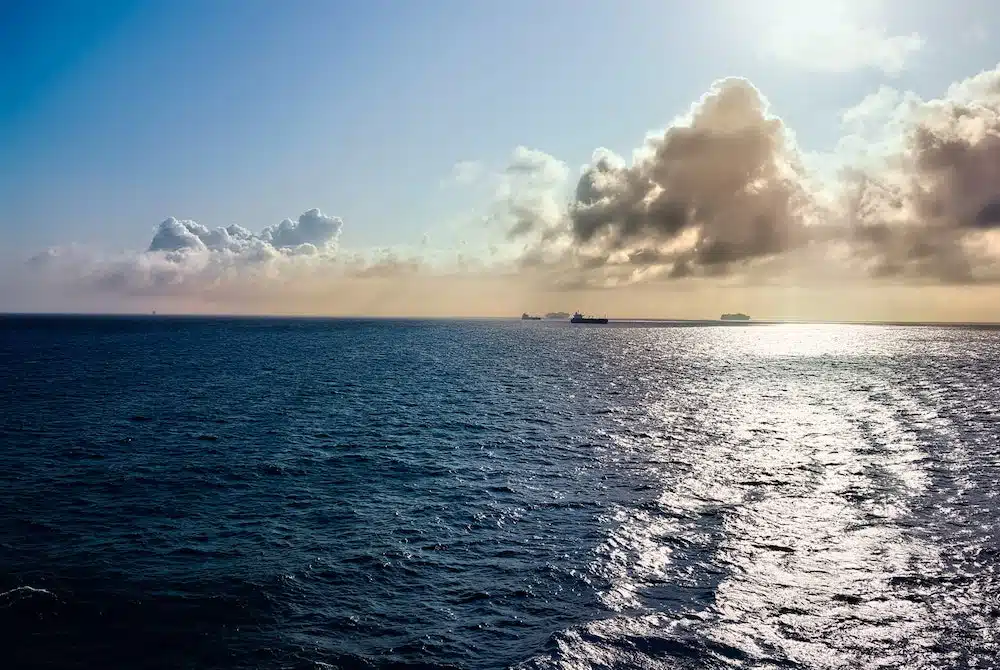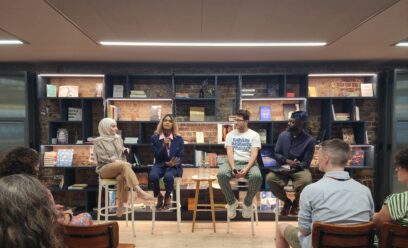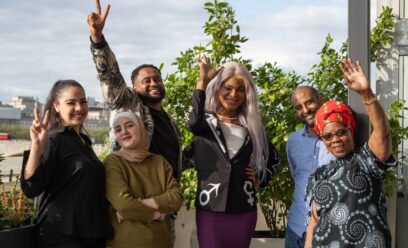It’s time to tell a different story about those crossing the Channel
Posted by Katherine Maxwell-Rose on August 7, 2020
Nigel Farage has once again been stoking up hatred on Twitter by sharing a video of people arriving on the Kent coast by boat yesterday and claiming it as a ‘shocking invasion’. Far from some kind of military bombardment which we might imagine when someone uses such a word, what can actually be seen is several small children being carried up a beach by their parents.
It’s been a particularly nasty week of reporting on the Channel. Good Morning Britain chose to film from the middle of the sea focusing in on a tiny boat with several people on board; one of whom was bailing out water. The footage seems to have been misjudged. Many took to social media to complain about what they were seeing unfold on live TV and express their distress that nothing was being done to help those in the most vulnerable of situations. Such was the force of feeling the reporter was forced to defend his actions.
Last week The Mail chose to list the boats which had been seen on a particular day, attempting to describe the numbers of people on board as well as their presumably guessed nationalities.
Closely monitoring the arrival of people, putting it on live TV and posting updates about boats on social media has an unnerving voyeuristic and vigilante tone to it which is deeply concerning. It has absolutely no place in our communities, neighbourhoods and country – particularly now, more than ever when we are living through a global pandemic. We should be bringing people together, not creating more division.
The reality is no one knows the exact stories of those on arriving – not Farage, not a journalist or a politician. Until those people have the opportunity to tell their story and history, we can’t know the specific reasons why each person chose to make such a journey.
We can speak from our experience of working with people who make dangerous and unpredictable journeys. Many are fleeing conflict and persecution, many are wanting to be reconciled to families already in the UK and build a new life in a safe country. As Warsin Shire says so astutely in her brilliant poem, Home: ‘You have to understand/that no one puts their children in a boat/unless the water is safer than the land.’
Challenging this hateful narrative which is on the rise is crucial. Storytelling is essential in breaking down barriers of mis-information, stereotyping and criminalising those searching for a better future.
People with lived experience speaking out on this issue are fundamental to challenging mis-conceptions and showing the human side to these reports. While blurry images of boats in the sea are distancing and confusing for audiences; personal testimonies can change mindsets. Ahmad Al-Rashid who himself has had to flee conflict in both Syria and Iraq before embarking on an extraordinary journey to Europe, responded brilliantly to Farage’s video, when he described what it is really like to live through an invasion.
Last year a Channel 4 news report filmed a young Afghan refugee who arrived by boat to the UK taking her first flying lesson as part of her dream to become an airline pilot. This kind of powerful storytelling focusing on hopes and aspirations immediately changes perceptions about those who seek asylum, create a positive narrative and connects with a broad range of audiences.
For those without these direct experiences, there is a role in publicly voicing calls for compassion, reason and dignity. Urging our networks to look beyond the headlines and presenting a reasonable, well-thought out alternative. Talking of those we know who have undertaken these journeys, explaining the reasons why, can inform those who find it difficult to understand why anyone would attempt to cross the Channel in such a dangerous way. In calls for safe and legal routes for people, we should be as specific as possible considering what this might look like and what an audience might understand this to be. The success of family reunion policies and resettlement schemes can be powerful leverages here.
Farage may want to incite hatred, to ‘other’ those he knows little about but the more vile and inflammatory he sounds, the more opportunity there is to strike a totally different tone. The power of personal stories can not be under-estimated, while speaking out for compassion and fairness must always be a priority. Like so many who hold onto hope for a better life in the UK, we too must hope and work together to change this narrative.



